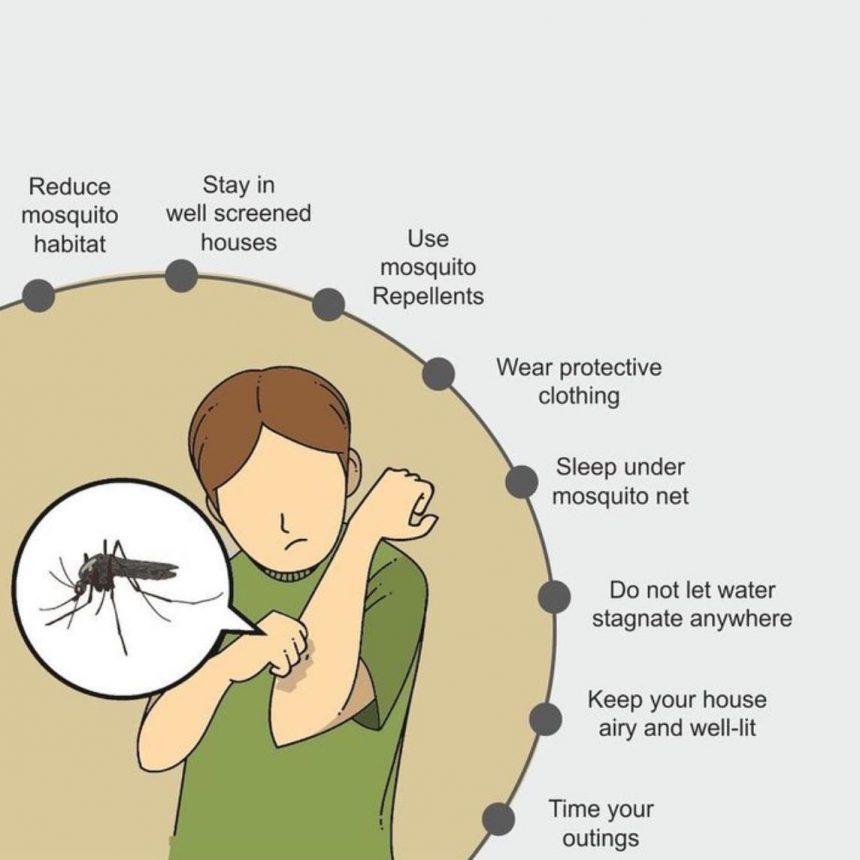Srinagar, Oct 28: Jammu and Kashmir has reported a decline in dengue cases, with the Union Territory recording 4,549 infections and one confirmed death since January 1. According to official figures, the cases include 2,852 from Jammu, 496 from Samba, 411 from Kathua, 239 from Udhampur, 179 from Reasi, 114 from Rajouri, 58 from Poonch, 96 from Doda, 40 from Ramban, 14 from Kishtwar, 18 from the Kashmir division, and 32 from other states and UTs.
State Malariologist Dr. D.J. Raina noted a steady decrease in cases over the past three weeks, with a total of 25,660 tests conducted across the UT. Providing a weekly update, he highlighted that as of September 22, there were 449 cases recorded that week. By September 29, the number had increased to 597, followed by 658 on October 6, 745 on October 13, 736 on October 20, and 734 on October 27.
The Health Department in Jammu has issued a detailed advisory emphasizing the prevention of dengue, a viral disease transmitted by Aedes mosquitoes. The advisory urged residents to avoid water stagnation, regularly empty storage containers, and dispose of junk items like old tires and disposable items that could collect water. It also advised using mosquito repellents and wearing clothing that covers the arms and legs.
“Avoid water stagnation around the house. Empty water reservoirs regularly, such as storage utensils, air coolers, plant pots, and drums. Dispose of junk items that can collect water, like old tires and used cold drink bottles. Keep water tanks tightly covered,” the advisory stated.
For added protection, the Health Department recommended the use of mosquito nets while sleeping and installing netted screens on doors and windows. The advisory also emphasized avoiding outdoor sleep arrangements, such as terraces, to prevent mosquito bites.
The department advised people to seek medical attention at nearby health institutions if symptoms of dengue arise, noting that tests and treatment are available free of cost at government facilities. “Don’t go for self-medication. If high fever occurs, use Paracetamol and consult a doctor. Avoid painkillers and other medications without medical guidance. Most dengue cases are mild and can be treated at home,” the advisory said.
It further warned that after the fever subsides, patients should remain vigilant as severe forms of dengue can develop. Those experiencing symptoms of severe dengue should seek immediate medical attention. Daily activities should be resumed only two weeks after the onset of fever, and it is advised to stay hydrated by drinking fluids like coconut water, lassi, fruit juices, and ORS. Consumption of fresh fruits, vegetables, and adequate rest is also recommended during recovery.
As a comparison, the Health Department noted that by this time last year, the region had reported approximately 4,693 dengue cases. Despite the decline in cases, the department continues to urge residents to follow preventive measures strictly to curb the spread of dengue.
Dengue cases show steady drop over past three weeks: Official

Leave a Comment
Leave a Comment







